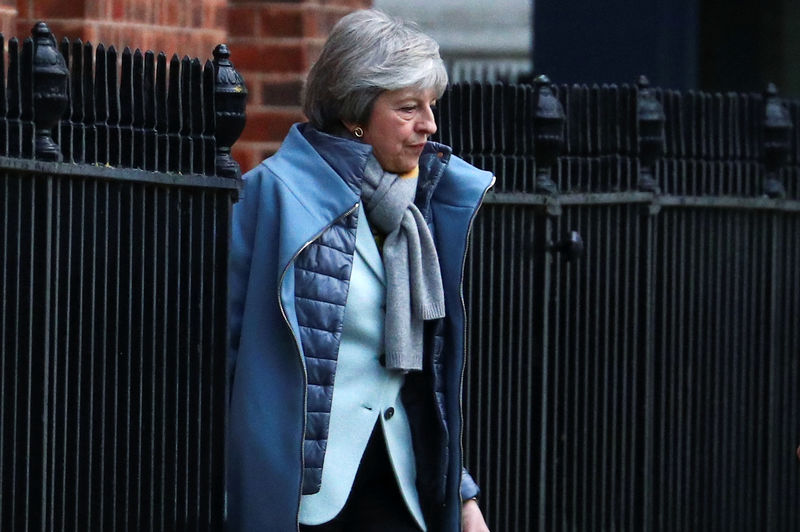LONDON (Reuters) - British Prime Minister Theresa May plans to seek a bilateral treaty with the Irish government as a way to remove the contentious backstop arrangement from Britain's divorce deal with the European Union, a newspaper reported.
The Sunday Times said aides to May thought a deal with Ireland would remove the opposition to her Brexit plan from the Democratic Unionist Party that supports May's minority government and from pro-Brexit rebels in her Conservative Party.
However the Irish edition of the same newspaper quoted a senior Irish government source as saying the bilateral treaty proposal was "not something we would entertain" and a second senior political source as saying it would not work with the European Commission.
May suffered a heavy defeat in parliament on Tuesday when Conservative lawmakers and members of other parties rejected her Brexit plan by an overwhelming majority.
That left Britain facing the prospect of no deal to smooth its exit from the EU in little more than two months' time.
May is due to announce on Monday how she plans to proceed.
Many Conservatives and the DUP oppose the backstop that the European Union insists on as a guarantee to avoid a hard border between the Irish Republic and Northern Ireland.
No one was immediately available for comment on the Sunday Times report in May's office nor in the Irish government.
Earlier on Saturday, Ireland's foreign minister Simon Coveney said Dublin's commitment to the Brexit divorce deal struck with the British government was "absolute," including the border backstop arrangement.

The Sunday Times also said a group of lawmakers in Britain's parliament would meet on Sunday to consider ways they could suspend the Brexit process, wresting control away from May's government.